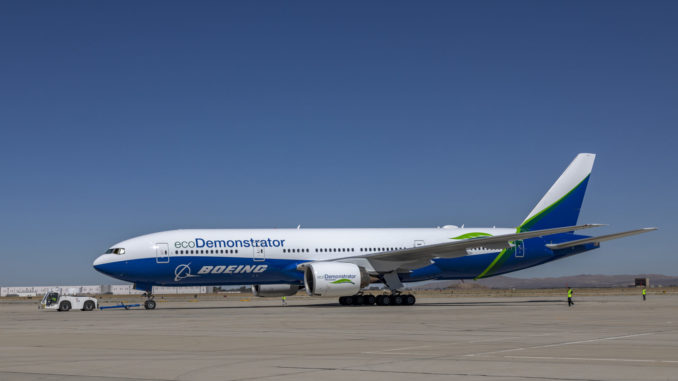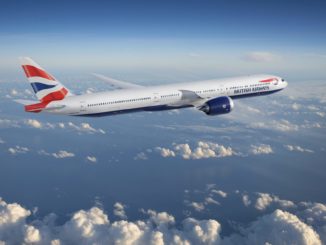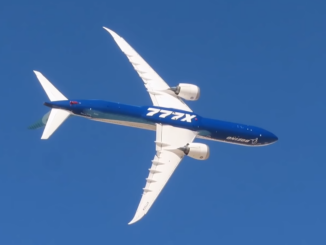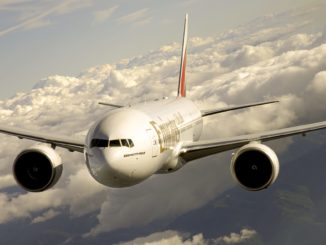
US airframer Boeing has committed to producing aircraft by 2030 that are ready to fly on 100% sustainable fuel to address aviation role in the challenge of climate change.
Boeing is pioneering making sustainable jet fuels and has already conducted test flights using 100% sustainable fuels.
According to studies, using sustainable fuels reduces the overall Co2 emissions by 80% over the entire fuel lifecycle from production to burn.
Under current regulations sustainable fuels can be mixed 50/50 with conventional jet fuels but in order to meet the industry aim to reduce Carbon emissions by 50% by 2050, Boeing says that airliners will need to fly on 100% sustainable fuel well before 2050.
Boeing Commercial Airplanes President and CEO Stan Deal said “Our industry and customers are committed to addressing climate change, and sustainable aviation fuels are the safest and most measurable solution to reduce aviation carbon emissions in the coming decades,” adding, “We’re committed to working with regulators, engine companies and other key stakeholders to ensure our airplanes and eventually our industry can fly entirely on sustainable jet fuels.”
Boeing has been conducting tests with biofuels since 2008 and in 2018, the Boeing ecoDemonstrator flight-test program made the world’s first commercial flight using 100% sustainable fuels with a 777 Freighter, in collaboration with US freight company, FedEx Express.
Chief Sustainability Officer Chris Raymond said: “With a long history of innovation in sustainable aviation fuels, certifying our family of airplanes to fly on 100% sustainable fuels significantly advances Boeing’s deep commitment to innovate and operate to make the world better,” adding, “Sustainable aviation fuels are proven, used every day, and have the most immediate and greatest potential to reduce carbon emissions in the near and long term when we work together as an industry.”
Sustainable fuels can be made from many sources with synthesized paraffinic kerosene able to be produced from sources including Animal fats, biomass and recycled oils.




